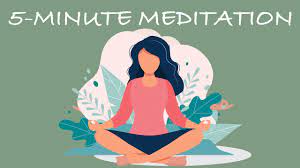Relaxing Music: Deep Sleep Music for a Peaceful Night’s Rest
In today’s fast-paced and stressful world, getting a good night’s sleep has become increasingly challenging for many people. The demands of work, family, and daily life often leave us feeling overwhelmed and unable to unwind when it’s time to sleep. This is where the power of relaxing music, specifically deep sleep music, comes into play.
Deep sleep music is a genre of soothing sounds designed to promote relaxation and induce a state of tranquility. It typically incorporates elements such as slow rhythms, gentle melodies, and calming instrumental compositions. The purpose of this music is to create an environment conducive to deep restorative sleep.
One of the key benefits of deep sleep music is its ability to help calm the mind and reduce stress levels. As we listen to these serene melodies, our brain waves begin to synchronize with the rhythm and tempo of the music. This synchronization promotes a meditative state that allows us to let go of racing thoughts and worries that often keep us awake at night.
Furthermore, deep sleep music has been found to have a positive impact on our physical well-being. Studies have shown that listening to relaxing music before bedtime can lower heart rate and blood pressure, leading to a more relaxed state conducive to falling asleep faster. It can also help regulate breathing patterns, promoting deeper and more restful sleep cycles.
Another significant benefit of deep sleep music is its ability to drown out external noises that may disrupt our slumber. Whether it’s street traffic, noisy neighbors, or other disturbances in our environment, having a soothing soundtrack playing in the background can create a buffer zone that helps us stay undisturbed throughout the night.
Moreover, deep sleep music has been found useful for individuals suffering from insomnia or other sleep disorders. By creating an atmosphere of tranquility and relaxation, it can assist in resetting disrupted sleeping patterns and establishing healthier habits for better quality rest.
To make the most of deep sleep music, it’s important to create a bedtime routine that incorporates this calming practice. Set aside a specific time each night to wind down, dim the lights, and play your favorite relaxing melodies. Allow yourself to fully immerse in the music, focusing on its soothing qualities and letting go of any tension or stress.
There are numerous platforms and apps available today that offer a wide range of deep sleep music playlists tailored to individual preferences. Experiment with different styles and artists to find what resonates with you the most. Some popular choices include ambient music, nature sounds, classical compositions, and instrumental tracks.
Remember that incorporating deep sleep music into your nighttime routine is not a quick fix for all sleep-related issues. It should be seen as part of a holistic approach to improving sleep hygiene, which includes maintaining a consistent sleep schedule, creating a comfortable sleeping environment, and practicing relaxation techniques such as meditation or breathing exercises.
In conclusion, deep sleep music can be a powerful tool in promoting relaxation and facilitating a peaceful night’s rest. By incorporating this calming practice into our bedtime routine, we can create an environment conducive to deep restorative sleep. Soothing melodies and gentle rhythms have the ability to calm our minds, reduce stress levels, drown out external disturbances, and help establish healthier sleeping patterns. So why not give it a try tonight? Transform your bedroom into an oasis of tranquility with the power of deep sleep music and experience the benefits for yourself.
8 Frequently Asked Questions About Relaxing Music for Deep Sleep
- What type of relaxing music is best for deep sleep?
- How can I find relaxing music to help me fall asleep?
- Is it safe to listen to relaxing music while sleeping?
- Does listening to relaxing music help with insomnia?
- How do I choose the right deep sleep music?
- What are the benefits of listening to calming music before bedtime?
- Are there any risks associated with listening to relaxation music during sleep?
- Is there a difference between relaxing and calming music for sleeping purposes?
What type of relaxing music is best for deep sleep?
When it comes to choosing the best type of relaxing music for deep sleep, it ultimately depends on personal preferences and what resonates with you the most. However, there are a few general genres and styles that are commonly recommended for promoting a peaceful night’s rest:
- Ambient Music: Ambient music is characterized by its atmospheric and soothing qualities. It often features soft synthesizer sounds, gentle melodies, and minimalistic compositions. The purpose of ambient music is to create a calming and immersive environment that helps induce relaxation.
- Nature Sounds: Nature sounds have long been associated with relaxation and tranquility. The gentle rustling of leaves, the rhythmic sound of ocean waves, or the peaceful chirping of birds can create a serene atmosphere that promotes deep sleep. Many people find these natural sounds to be incredibly soothing and conducive to falling asleep.
- Classical Music: Classical compositions have stood the test of time for their ability to evoke emotions and create a sense of calm. Pieces by composers such as Mozart, Bach, or Chopin often feature melodic lines and harmonies that can help relax the mind and body before sleep.
- Instrumental Music: Instrumental tracks without lyrics can be particularly beneficial for deep sleep as they minimize distractions and allow the mind to focus solely on the soothing melodies. Whether it’s instrumental versions of popular songs or specifically composed instrumental pieces, this genre can provide a tranquil backdrop for relaxation.
- Binaural Beats: Binaural beats involve playing two slightly different frequencies in each ear, creating an auditory illusion that affects brainwave activity. Different frequencies are believed to have various effects on brain states, including promoting relaxation and deep sleep. Many binaural beat tracks are specifically designed for sleep enhancement.
Remember that finding the best type of relaxing music for deep sleep is highly subjective. It’s essential to experiment with different genres, artists, or specific playlists to discover what works best for you individually. Pay attention to how the music makes you feel, whether it helps you unwind, and if it promotes a sense of calmness and tranquility.
How can I find relaxing music to help me fall asleep?
Finding relaxing music to help you fall asleep is easier than ever, thanks to various platforms and resources available online. Here are a few suggestions on how to find the perfect tunes for a peaceful slumber:
- Streaming Platforms: Popular music streaming platforms like Spotify, Apple Music, and YouTube Music offer curated playlists specifically designed for sleep and relaxation. Search for keywords such as “sleep music,” “relaxing music,” or “deep sleep playlists” to discover a wide range of options.
- Sleep Apps: Many dedicated sleep apps feature a variety of soothing sounds and melodies to help you drift off to sleep. Apps like Calm, Headspace, and Relax Melodies offer an extensive library of sleep-inducing tracks that you can choose from based on your preferences.
- Online Radio Stations: Explore online radio stations or podcasts that focus on ambient or chill-out music genres. These stations often have dedicated programs or playlists designed explicitly for promoting relaxation and better sleep.
- Nature Sounds: If you find the sound of nature calming, consider searching for recordings of rain, ocean waves, forest sounds, or gentle wind chimes. Websites like YouTube or specialized apps provide numerous options for nature-inspired audio that can create a serene atmosphere conducive to falling asleep.
- Classical Music: Classical compositions by composers such as Mozart, Bach, or Debussy are known for their soothing qualities and ability to induce relaxation. Look for playlists featuring classical pieces specifically chosen for their calming effects.
- White Noise Machines: While not strictly music, white noise machines can create a consistent background sound that helps mask external noises and promotes better sleep. They often include options like rainfall, fan sounds, or gentle static that can be soothing when trying to fall asleep.
Remember that everyone’s preferences differ when it comes to relaxing music. It may take some trial and error to find the specific sounds or genres that resonate with you personally. Experiment with different styles and artists until you discover the music that helps you unwind and drift off to a peaceful sleep.
Is it safe to listen to relaxing music while sleeping?
Yes, it is generally safe to listen to relaxing music while sleeping. In fact, many people find it beneficial for their sleep quality and overall well-being. However, there are a few considerations to keep in mind:
- Volume: Ensure that the volume of the music is set at a low and comfortable level. Loud or excessively high volume can disrupt your sleep or potentially damage your hearing.
- Comfortable Listening: Use comfortable headphones or speakers that won’t cause discomfort or disturb your sleep position.
- Personal Preferences: Choose music that you find soothing and relaxing. Everyone has different preferences when it comes to music, so select tracks that resonate with you personally.
- Melody and Rhythm: Opt for music with slow rhythms and gentle melodies, as these tend to be more conducive to relaxation and sleep.
- Consistency: Establish a routine by incorporating relaxing music into your bedtime ritual consistently. This helps signal to your body and mind that it’s time to unwind and prepare for sleep.
- Sleep Disorders: If you have a diagnosed sleep disorder or are experiencing significant difficulties falling asleep or staying asleep, it may be helpful to consult with a healthcare professional who can provide personalized advice based on your specific situation.
Remember, while relaxing music can be beneficial for many individuals, it might not work the same way for everyone. It’s essential to pay attention to your own comfort levels and adjust accordingly if you find that certain types of music interfere with your sleep rather than enhance it.
Overall, listening to relaxing music while sleeping can create a peaceful atmosphere conducive to restful nights. Experiment with different styles of music and find what works best for you personally in order to optimize your sleep experience.
Does listening to relaxing music help with insomnia?
Listening to relaxing music can be beneficial for individuals struggling with insomnia. Insomnia is a sleep disorder characterized by difficulty falling asleep, staying asleep, or experiencing non-restorative sleep. It can be caused by various factors, including stress, anxiety, racing thoughts, or an overactive mind.
Relaxing music has the potential to create a calming and soothing environment that promotes relaxation and helps quiet the mind. When we listen to gentle melodies and slow rhythms, our brain waves begin to synchronize with the rhythm of the music. This synchronization can induce a meditative state and reduce stress levels, making it easier to let go of racing thoughts and worries that often keep us awake at night.
Moreover, relaxing music has been found to have a positive impact on physiological responses associated with sleep. Studies have shown that listening to calming music before bedtime can lower heart rate and blood pressure, leading to a more relaxed state conducive to falling asleep faster. It can also help regulate breathing patterns, promoting deeper and more restful sleep cycles.
However, it’s important to note that the effectiveness of relaxing music for insomnia may vary from person to person. While some individuals may find great benefit from incorporating this practice into their bedtime routine, others may not experience significant improvements in their sleep quality.
In addition to listening to relaxing music, it’s essential to address any underlying causes of insomnia and adopt healthy sleep hygiene practices. This may include maintaining a consistent sleep schedule, creating a comfortable sleeping environment free from distractions, avoiding stimulants like caffeine before bed, and practicing relaxation techniques such as meditation or deep breathing exercises.
If you are experiencing persistent insomnia or have concerns about your sleep patterns, it is advisable to consult with a healthcare professional who can provide personalized guidance and support tailored to your specific needs.
How do I choose the right deep sleep music?
Choosing the right deep sleep music can greatly enhance your relaxation and promote a peaceful night’s rest. Here are some tips to help you select the perfect music for your needs:
- Personal Preference: Start by considering your personal taste in music. Deep sleep music comes in various genres, including ambient, classical, instrumental, nature sounds, and more. Think about the type of music that resonates with you and brings a sense of calmness and serenity.
- Instrumentation: Pay attention to the instrumentation used in the music. Some people find that soft piano or guitar melodies create a soothing atmosphere, while others prefer the gentle sounds of nature like rain or ocean waves. Experiment with different instruments to find what appeals to you and helps you relax.
- Rhythm and Tempo: Consider the rhythm and tempo of the music. Slow-paced melodies with a gentle rhythm tend to induce a state of relaxation more effectively than fast-paced or upbeat tracks. Look for compositions that have a steady and calming tempo that matches your desired sleep environment.
- Repetitive Patterns: Music with repetitive patterns can be particularly effective for promoting relaxation and sleep. These patterns help quieten an overactive mind by providing a predictable structure that is soothing and comforting.
- Lyrics or Instrumental: Decide whether you prefer music with lyrics or purely instrumental compositions. While lyrics can be beautiful and meaningful, they may also engage your mind more actively, making it harder to drift off into deep sleep. Instrumental tracks often provide a more tranquil experience without distractions.
- Experimentation: Don’t be afraid to experiment with different styles and artists until you find what works best for you. Explore various playlists on streaming platforms or try out different albums specifically designed for deep sleep or relaxation purposes.
- Mind-Body Connection: Consider how the music makes you feel on an emotional level. The right deep sleep music should evoke feelings of tranquility, peace, and comfort. Trust your intuition and choose music that resonates with you and helps you unwind.
- Sleep Apps or Playlists: Utilize sleep apps or curated playlists specifically designed for deep sleep. These platforms often have a wide range of options to choose from, allowing you to explore different styles and discover new artists that align with your preferences.
Remember, everyone’s preferences are unique, so what works for someone else may not work for you. It’s essential to listen to your body and find the deep sleep music that creates a calming and relaxing environment tailored to your needs. By incorporating the right music into your bedtime routine, you can create a soothing atmosphere that promotes deep restorative sleep.
What are the benefits of listening to calming music before bedtime?
Listening to calming music before bedtime offers several benefits for a restful night’s sleep. Here are some of the key advantages:
- Stress Reduction: Calming music has a soothing effect on the mind and body, helping to reduce stress and anxiety levels. It can help quiet racing thoughts, relax tense muscles, and promote a sense of tranquility that is conducive to falling asleep.
- Improved Sleep Quality: Listening to calming music before bedtime has been shown to improve sleep quality. It can help regulate heart rate and blood pressure, leading to a more relaxed state that promotes deeper and more restorative sleep cycles.
- Sleep Onset Assistance: Many people struggle with falling asleep quickly due to an overactive mind or external distractions. Calming music provides a peaceful auditory environment that can distract from intrusive thoughts or disruptive noises, helping you drift off into slumber more easily.
- Mindfulness Promotion: Engaging with calming music before bed encourages mindfulness and present-moment awareness. By focusing on the soothing melodies and rhythms, you can redirect your attention away from daily stressors, promoting relaxation and preparing your mind for sleep.
- Sleep Disorders Management: For individuals dealing with insomnia or other sleep disorders, listening to calming music can be particularly beneficial. It acts as an effective non-pharmacological intervention that helps reset disrupted sleeping patterns and establish healthier habits for better quality rest.
- Enhanced Sleep Hygiene: Incorporating calming music into your bedtime routine contributes to overall improved sleep hygiene. By creating a consistent ritual that signals your body it’s time to wind down, you establish healthy associations between relaxation cues like music and sleep.
- Positive Mood Influence: Music has the power to evoke emotions and influence our mood significantly. Listening to calming tunes before bed can uplift your spirits, alleviate negative emotions accumulated throughout the day, and contribute to a more positive mental state as you prepare for sleep.
- Mental Well-being Support: The relaxation induced by calming music can have a positive impact on mental well-being. It can help reduce symptoms of depression and anxiety, promoting a sense of calm and tranquility that carries over into the sleep experience.
Incorporating calming music into your bedtime routine is a simple yet effective way to enhance your sleep quality and overall well-being. Whether it’s classical compositions, ambient sounds, nature melodies, or instrumental tracks, find the type of music that resonates with you and create a peaceful auditory environment to prepare yourself for a restful night’s sleep.
Are there any risks associated with listening to relaxation music during sleep?
While listening to relaxation music during sleep can generally be beneficial, there are a few potential risks or considerations to keep in mind:
- Volume: It’s important to ensure that the volume of the music is not too loud. Excessive volume can disrupt sleep and potentially damage your hearing over time. Keep the volume at a comfortable level, allowing the music to serve as background noise rather than overpowering your sleep environment.
- Distraction: Some individuals may find that certain types of music or specific melodies can be distracting during sleep. It’s important to choose music that helps you relax and promotes a peaceful atmosphere without drawing too much attention or creating mental stimulation that hinders your ability to fall asleep.
- Personal Preferences: Musical preferences vary from person to person, and what may be relaxing for one individual might not have the same effect on another. It’s essential to select music that resonates with you personally and creates a soothing ambiance for your sleep routine.
- Sleep Disorders: While relaxation music can help many people improve their sleep quality, it may not be suitable for everyone, especially those with specific sleep disorders such as hypersomnia or certain forms of insomnia. If you have a diagnosed sleep disorder, it’s advisable to consult with a healthcare professional before incorporating any new practices into your bedtime routine.
- Dependency: Some individuals may develop a reliance on relaxation music in order to fall asleep, which can potentially lead to difficulties sleeping without it. It’s important to strike a balance and use relaxation music as an aid rather than becoming dependent on it as the sole means of achieving restful sleep.
It’s always wise to listen to your body and adjust your habits accordingly. If you experience any negative effects or disruptions in your sleep patterns while using relaxation music, it may be necessary to reevaluate its role in your bedtime routine or explore alternative methods that better suit your needs.
As with any health-related practice, it’s recommended to consult with a healthcare professional if you have specific concerns or questions about incorporating relaxation music into your sleep routine.
Is there a difference between relaxing and calming music for sleeping purposes?
Yes, there can be a difference between relaxing music and calming music when it comes to their impact on sleep. While both types of music aim to create a soothing atmosphere, they may have slightly different effects on individuals based on personal preferences and responses.
Relaxing music typically refers to a genre or style of music that induces a sense of relaxation and calmness. It often incorporates slow tempos, gentle melodies, and soft instrumentation. Relaxing music aims to create a peaceful ambiance that helps the listener unwind and let go of stress or tension. This type of music can be beneficial for promoting relaxation before sleep, allowing the mind and body to enter a state of tranquility.
On the other hand, calming music focuses more on reducing arousal levels and creating a sense of serenity. It aims to quiet the mind, slow down racing thoughts, and promote a deep sense of peace. Calming music may incorporate elements such as nature sounds (such as ocean waves or rain), repetitive patterns, or specific frequencies known for their relaxing properties (e.g., binaural beats). This type of music can be particularly helpful for individuals who struggle with anxiety or have difficulty quieting their mind at bedtime.
While the terms “relaxing” and “calming” are often used interchangeably, it’s important to note that everyone’s response to different types of music can vary. What one person finds relaxing may not have the same effect on another individual. It’s essential to explore various genres, styles, and artists to find what resonates with you personally and helps you achieve a state of tranquility conducive to sleep.
Ultimately, whether you choose relaxing or calming music for sleep purposes depends on your individual preferences and what works best for you in terms of promoting relaxation and easing into a restful night’s sleep. Experimentation is key in finding the right balance that helps you unwind, let go of stressors from the day, and prepare your mind and body for a peaceful sleep experience.




